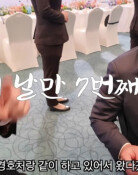[Editorial] Donation Culture
[Editorial] Donation Culture
Posted December. 02, 2006 07:27,
Amid conflict and confusion, this year is nearing its end. Now is the time for us to look beyond ourselves and take care of less-privileged people in our society. Sharing wealth and helping people are like shedding light in the shade of our society, where wealth is not evenly distributed. Through sharing, our society becomes happier and more prosperous. Community Chest of Korea officially began its fund-raising campaign for underprivileged people yesterday.
In Korean society, donation culture is not yet well established and many people are still not generous when it comes to donation. There is even a saying that it is poor elderly female street vendors selling kimbab who donate their hard-earned money that are keeping Korean donation culture alive. According to research by the Beautiful Foundation, two thirds of respondents said that they donated or volunteered last year, but the average amount of money donated by each household last year stood at a mere 70,000 won. In the U.S., nine out of ten households donate an average amount of $620, around 600,000 won. Even when differences in income levels are taken into consideration, Korea cannot be called an advanced country when it comes to donations.
Still, these days, a few people are touching other peoples hearts by making donation despite their own financial hardships. A growing number of people are choosing to volunteer to offer their talents or time instead of money. They are practicing sharing not because theyve already got enough, but because they want to help those who do not have at all. Mr. Lee Chang-sik, who is donating one percent of what he earns by repairing shoes falls into this category (Our newspaper has covered his story on the front page on December 1).
According to the article Amazing truth of donation published recently in the U.S.-based newspaper Christian Science Monitor, one dollar of donations brings 19 dollars in profit, and the socioeconomic impact generated by donations, including its intangible function of unifying society, is enormous. Just from the economic perspective, donations are a good investment. In addition, donations are one of the driving forces that make society healthier by easing social conflicts and bridging the gap between the rich and poor.
However, in Korean society, it is also true there is a certain atmosphere where receiving assistance is taken for granted as the right of have-nots and those providing help are not fully appreciated with gratitude. One of the reasons behind such an atmosphere is the negative perception that Korean people have toward those who amassed their wealth in ways that were not quite aboveboard. Therefore, it is also quite understandable for individuals or corporations who once wanted to help out those in need even in the current economic difficulty, are now tempted to give up their efforts for sharing because of that atmosphere. Donors and donation should be respected and appreciated in a truly advanced nation.
Donations make donors happy. We all know that the stories of those saying that they became happier after sharing are filled with truth. That is the magic power of donation.




![[속보]美 “미국인은 이란 당장 떠나라” 대사관 긴급 공지](https://dimg.donga.com/c/138/175/90/1/wps/NEWS/IMAGE/2026/01/13/133147285.1.jpg)


